| Article ID | Journal | Published Year | Pages | File Type |
|---|---|---|---|---|
| 4269758 | The Journal of Sexual Medicine | 2014 | 7 Pages |
IntroductionRelationship obsessive–compulsive disorder (ROCD) is marked by the presence of obsessions and compulsions focusing on romantic relationships. ROCD symptoms were previously linked with decreased relationship quality and might interfere with sexual functioning.AimThe study aims to examine the association between ROCD symptoms and sexual satisfaction.MethodsParticipants completed an online survey assessing ROCD symptoms and relationship and sexual satisfaction levels. Depression, general worry, obsessive–compulsive disorder (OCD) symptoms, and attachment orientation were also measured.Main Outcome MeasureThe main outcome measures were self reported relationship satisfaction and sexual satisfaction.ResultsROCD symptoms were associated with decreased sexual satisfaction over and above symptoms of depression, general worry, OCD, and attachment orientation. The link between ROCD symptoms and sexual satisfaction was mediated by relationship satisfaction.ConclusionsIdentifying and addressing ROCD symptoms may be important for treatment of sexual functioning. Doron G, Mizrahi M, Szepsenwol O, and Derby D. Right or flawed: Relationship obsessions and sexual satisfaction. J Sex Med 2014;11:2218‐2224.
